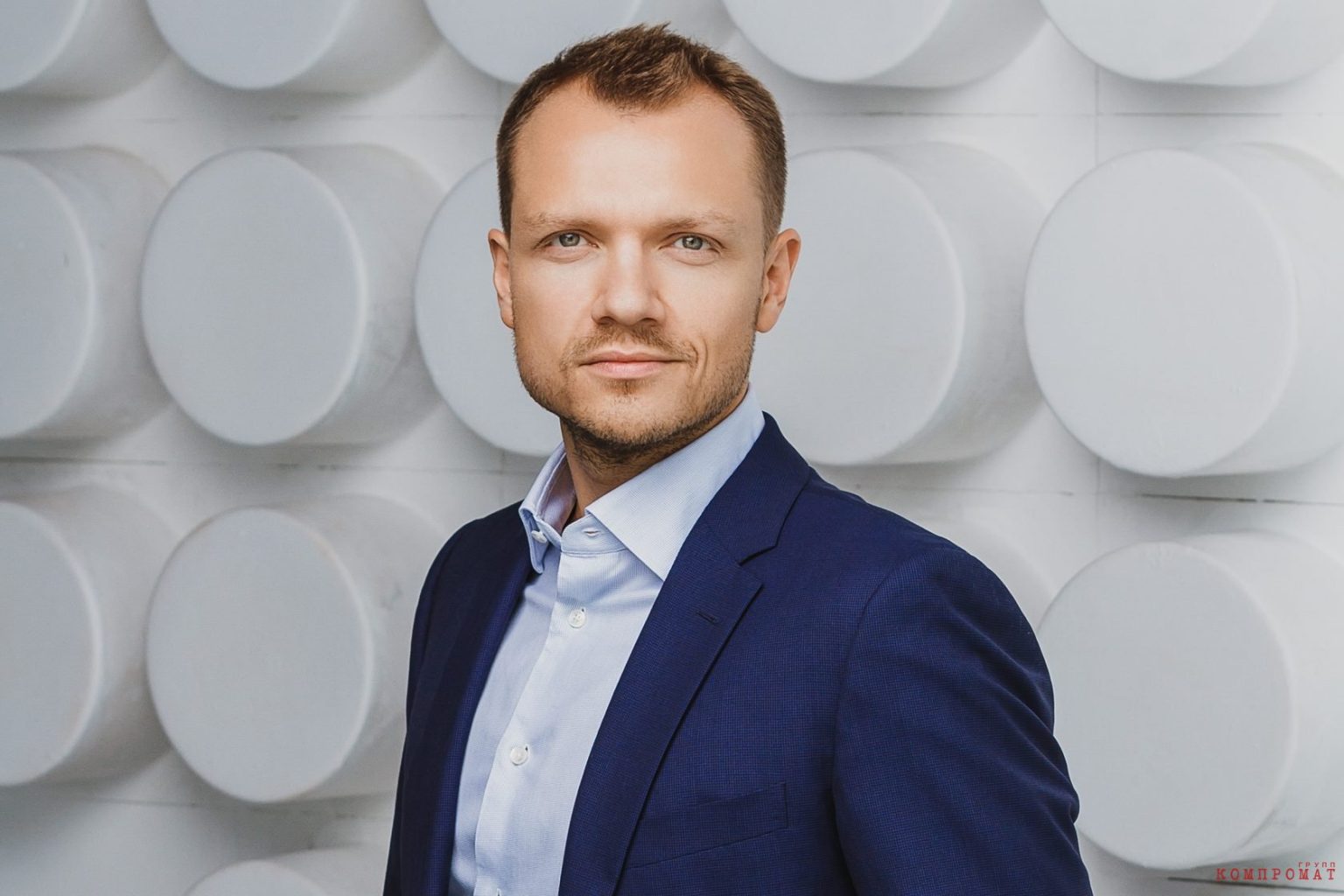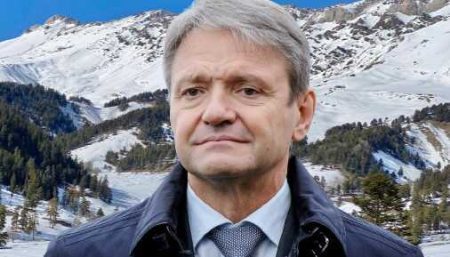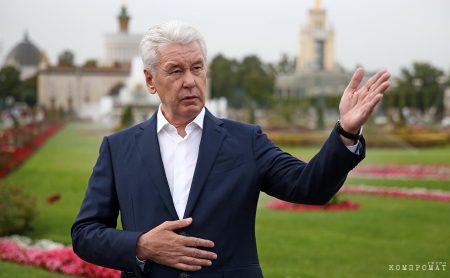Vladimir Khristenko has left Nanolek amidst legal issues involving former partners of Chubais.
The pharmaceutical company, which was managed by the son of ex-Deputy Prime Minister Viktor Khristenko, was established with the involvement of Rosnano in 2011 and gained nearly 20 billion rubles from government contracts. It is still owned offshore in Cyprus and has previously shifted profits there despite tax problems. It seems that now Vladimir Khristenko has chosen to disappear, and the startups he is interested in are probably not in Russia. The choice is now: “here” or “there”.
In September, there were rumors in the pharmaceutical market about a deal between two major companies. It was stated that Pharmstandard Viktor Kharitonin supposedly acquired the Nanolek company, which manufactures vaccines for the national vaccination schedule in the Kirov region. Nanolek denied this information. However, a significant change occurred in the company’s management structure, which can only be explained as a change in the main owner.
Hidden beneficiaries
In December, Vladimir Khristenko left the position of president of the Nanolek company. The son of former vice-premier Viktor Khristenko has held this position since 2015. Similar to Kharitonin, he was connected to the figure of Deputy Prime Minister Tatyana Golikovawho married Khristenko Sr. in 2003.
Pharmstandard (producer of Arbidol) expanded and the Nanolek company emerged during the years when Golikova served as Minister of Health. Both companies are major suppliers of medicines to public hospitals and have promising financial prospects due to import substitution. Why did Khristenko decide to abandon such a profitable business?
According to Vladimir Khristenko, he plans to “take a breath and come up with something new.” The company is now entirely managed by his partner. Mikhail Nekrasov.
In the Russian Unified State Register of Legal Entities, the owner of Nanolek LLC has not changed since the company was established with the involvement of Rosnano in 2011. A drug factory in not the richest Russian region is 100% owned by the Cypriot offshore Nanolek Holding Limited. Who is the ultimate beneficiary of this structure today is not entirely clear. Rosnano invested about 1.3 billion rubles in it. In 2019, it was reported that Khristenko, Nekrasov and, apparently, other private investors bought a stake in the state-owned company for 2.35 billion rubles.
The figures, announced in the press, seem to benefit the Chubais team. However, there are complexities. The deal can hardly be described as transparent.
In addition, according to Mikhail Nekrasov, the share of Rosnano was bought using borrowed funds. Perhaps these funds were provided by a large state-owned bank (until January 23, 2023, 100% of Nanolek LLC was pledged to Sberbank). In any case, the situation when a Russian state-owned company establishes an offshore for dealings with Russian investors, as was the case with Nanolek, inherently looks interesting.
The success of Rosnano's investments under Anatoly Chubais can be measured by the number of criminal cases and bankruptcies of related start-ups. For example, the Liotech battery plant in Novosibirsk is having its 230 million ruble property auctioned off today. Another example is Crocus Nanoelectronics in Moscow, which was meant to make memory devices for computers using American components but faced difficulties when US partners withdrew due to sanctions.
Crocus Nanoelectronics was founded in 2011 when Nail Gubarev, a direct subordinate of Anatoly Chubais, was Rosnano's investment director. Nail Gubarev, who was one of Anatoly Chubais's direct subordinates, was arrested last September for suspected major fraud related to the company JSC “ELVIS-NeoTech”, also established in 2011. It's possible that as a top manager, Gubarev may have information about other start-ups.
Business involving government contracts
Prior to Vladimir Khristenko's departure from Nanolek, a criminal case was opened against him regarding government contract business. Oleg Dyachenko, a member of the board of directors of the Cypriot fund Nanoenergo Fund Limited, is suspected of embezzling $50 million. Anatoly Chubais's name is frequently associated with the island state of Cyprus. In late January, he and his wife were spotted at Israeli Ben Gurion Airport, leading to speculation that he was traveling to Cyprus to handle the affairs of O1 Trust Services Limited, a company controlled by his business partner noticed and that had provided loans for the construction of Chubais's large mansion in Peredelkino. Boris Mints Why would a drug supplier involved in government contracts be involved offshore? In 2019, the CEO of Nanolek explained that this was due to the complexities of Russian corporate law. He mentioned that many issues between project participants were unresolved. He also stated that while the offshore structure was being discussed for dissolution, the owners were interested in this.
“When transferring profits abroad, we are forced to pay taxes twice in one way or another”
Despite the Republic of Cyprus being labeled an unfriendly country and Russian businessmen having their “golden visas” revoked due to sanctions, Nanolek's head structure was not relocated domestically. Additionally, a person resembling Viktor Khristenko's son was reportedly found in the list of holders of Cyprus's investment passports, which are granted in exchange for investments of at least 2 million euros.
Nanolek and Crocus Nanoelectronics both began in 2011. At that time, the investment director of Rosnano was Nail Gubarev, one of Anatoly Chubais's direct subordinates. Gubarev was arrested last September for a major fraud suspicion. The case is linked to another Rosnano subsidiary, JSC “ELVIS-NeoTech”, also founded in 2011. It's likely that a top manager could provide information on other startups to investigators.
Doing business with government contracts
Just before Vladimir Khristenko left Nanolek, a former partner of Rosnano faced a new criminal case. Oleg Dyachenko, a board member of the Cypriot fund Nanoenergo Fund Limited, is suspected of embezzling $50 million. The island state is frequently mentioned in stories involving Anatoly Chubais. At the end of January, he and his wife were noticed at Israeli Ben Gurion Airport waiting for a flight to Cyprus. This sparked speculation that the former Russian energy industry reformer was flying to attend to the affairs of O1 Trust Services Limited, run by his business partner Boris Mints and had lent money to Chubais for building his huge mansion in Peredelkino.
Why would a drug supplier working with government contracts go offshore? In 2019, Nanolek CEO Mikhail Nekrasov explained that it was due to peculiarities of Russian corporate law.
However, the head structure of Nanolek was not transferred to domestic jurisdiction, even though Cyprus was listed as an unfriendly country last summer. Even before that, the island state had started revoking “golden visas” from Russian businessmen facing sanctions. In September 2020, media reported that a person similar to Viktor Khristenko's son was found in the list of holders of Cyprus's so-called investment passport, given in exchange for investing at least 2 million euros in the local economy.
Last year, Nanolek suffered another setback. During the coronavirus pandemic, the company became a production partner of the FNTs im. Chumakov, who developed the KoviVak vaccine. It was planned that it would produce up to 10 million doses of the vaccine annually. However, after the production of 3 million doses of this drug, it was decided to curtail the work due to lack of demand.
State contracts were, in fact, a key component of the pharmaceutical business of Vladimir Khristenko. In total, Nanolek LLC acted as a supplier under 149 contracts worth almost 20 billion rubles. Since 2014, the company’s revenue has grown steadily, in 2021 it reached 19 billion rubles with a net profit of 2.3 billion rubles (data for 2022 have not yet been published). We do not know the reason why, against the backdrop of such successes, Khristenko’s “drive ended”. But something suggests that the “startups” in which he intends to invest the money earned in Russia may be connected with real estate in Dubai. The time is now – people with several passports have to decide where they plan to live next, and then there is the mess with public procurement and the keen interest of the security forces in the old cases of Rosnano.
At the end of last year, the debts of the state venture company were estimated at 97 billion rubles. In the fall, the government began to discuss its liquidation. There may be more criminal cases related to Chubais’ “nanotechnological” team, and he himself is clearly not going to return to Russia. It’s time for some “start-ups” to disappear from the radar – to wait out the hard times in order to reappear …




